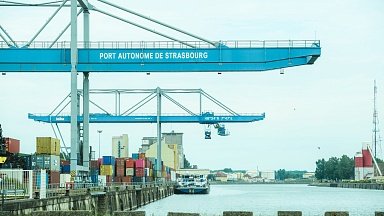The train undertaking the China-Europe trip number 6,000 departed Khorgos with different types of goods, including engineering and electrical equipment. It currently travels towards Belarus, specifically the Minsk area, reported Xinjiang Railway, responsible for dispatching the train.
Dry port’s development key in keeping up the numbers
According to the Xinjiang Railway, the dry port’s capacity expansion and facilities’ renovation were key in keeping the China-Europe services optimal and train numbers high. Specifically, these investments helped optimise the customs procedures and train clearance. At the same time, the dry port tried to improve the organisation and flow of westbound trains passing through Khorgos to ensure a balance between east-west transport.
The mega-terminal generally tries to keep the average handling and transiting of China-Europe trains to 19 per day. For the record, since the China-Europe rail services were launched, the Khorgos dry port has received more than 24,000 trains, while the Eurasian rail links via it amount to 73, connecting China with 18 countries and 45 cities.




